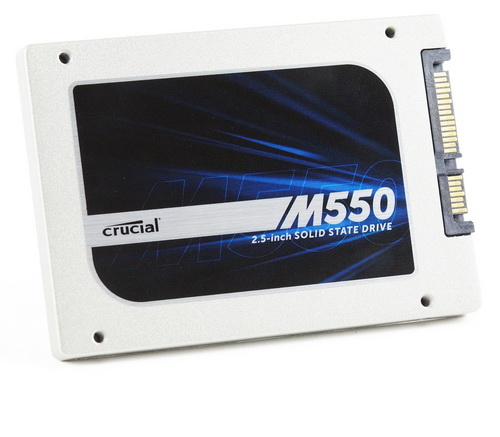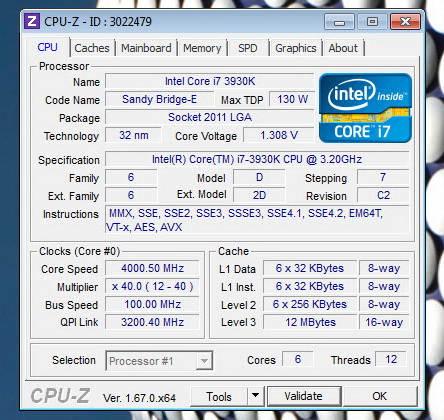INTRODUCTION

The new SATA-Express standard may be just around the corner both in terms of compatible mainboards, cards and drives but that obviously isn't reason enough to stop most SSD manufacturers from launching their next generation models based on SATA III. The list of names is quite long but as expected the main players like Kingston, Toshiba, Samsung, Crucial, Corsair and OCZ are the first ones to do so (and the ones that interest us the most since they have the largest piece of the market). A few days ago we had the chance to test the Q Series Pro 256GB SSD by Toshiba and although far from excellent it did provide surprisingly good read & write performance at a very tempting price tag. Today we'll be taking a higher end SSD model for a ride to see how well it does the brand new M550 256GB by Crucial.
Crucial.com is a leading online retailer specializing in computer memory (RAM) and solid state drives (SSD), and is operated by a subsidiary of Micron Technology, Inc., one of the world's leading manufacturers of computer memory products. Crucial.com offers more than 250,000 compatible products for nearly every computer system: home and business, old and new, PC and Mac® computers. Utilizing a suite of easy-to-use, free online tools, including the Crucial® System Scanner and the Crucial Memory Advisor™ tool, crucial.com makes it easy to find a compatible upgrade to improve computer performance and restore system reliability. For more information, visit www.crucial.com.
The M550 model by Crucial was launched as a higher performance option compared to the M500 which we reviewed a while back but it's not really a replacement (M600 in the works?) since both models will continue to exist in the market. As a matter of fact once you remove the casing both the M500 and the M550 are almost identical since both use the same 20nm MLC NAND flash modules, PCB, DRAM and capacitors so if you place both next to each other you will probably not be able to tell them apart. The only difference is the controller used and whereas the M500 made use of the Marvell 88SS9187 the M550 makes use of the new and slightly improved 88SS9189 (adds support for LPDDR and adds optimizations for DevSleep). The software/hardware features are also identical to the ones offered by the M500 model so once again we see support for RAIN (Redundant Array of Independent NAND), TCG Opal 2.0 and IEEE-1667 making the M550 fully compatible with Microsoft’s eDrive encryption. Crucial has once again used capacitors on the PCB for power-loss protection just like with the M500 but this time over they have also implemented several NAND-level tweaks to improve on that although they haven't been really clear on what those tweaks are (till now anyways). So the time has come for us to see whether or not the brand new M550 is faster compared to the M500 and a worthy addition to the Crucial SSD lineup.
SPECIFICATIONS AND FEATURES

PACKAGING AND CONTENTS
The M550 is shipped inside a small box like its predecessor that has a large product picture at the front and the drive capacity.
On the left side Crucial has placed the main features of the drive.
A drawing showcasing the bundle contents can be found at the rear.
Aside the M550 256GB SSD you will also receive a 7mm to 9.5mm spacer.
THE M550 256GB
Appearance-wise the casing of the M550 is identical to that of the M500 so nothing new here.
The model name, model number, serial number, barcodes, electrical requirements, model capacity, encryption key (PSID), firmware version and several certification icons are placed on a large sticker at the rear.
At the rear we see the typical SATA power and data connectors.
Crucial makes it very easy to open the casing but by doing so you're voiding the warranty.
The drive has a total of 16 NAND flash modules on both sides of the PCB.
On the opposite side we see the low-power DRAM module by Micron (512MB LPDDR3) and the Marvel 88SS9189 controller.
TEST BED


TESTING METHODOLOGY
After roughly 6 years of testing sold state drives i have concluded that it's almost impossible for any single benchmark suite to accurately measure their performance and that's why in certain benchmark suites we see amazing read/write performance numbers with some drives while in others things are quite different. The reason behind this is that some benchmarking suites are configured to read and write random chunks of data while others read and write constant (sequential) ones. So that's why i always use a very wide selection of benchmarking suites including AIDA64, HD Tach RW, HD Tune Pro, Crystal Disk Mark, Sisoftware Sandra Pro, AS SSD, IOmeter and ATTO. To get the most accurate results each test gets repeated a total of 6 times with the average performance numbers recorded into our charts.
Many people made inquiries about the charts ever since the last comparison so once again please do keep in mind that the Charts have the average performance numbers of each drive recorded and not the peak (highest) ones. Also although every single one of these programs can help potential buyers choose the right drive for their needs you should also remember that from any kind of benchmark up to real world usage the gap is not small (and usually most differences will go unnoticed by most people). All tests were performed in a fresh Windows 7 Ultimate x64 installation with every update installed up to June 6th 2014.
TEST RESULTS - AIDA64 / ATTO


TEST RESULTS - HD TUNE PRO / HD TACH RW


TEST RESULTS - SISOFTWARE SANDRA PRO / CRYSTAL DISK MARK


TEST RESULTS - AS SSD / IOMETER


CONCLUSION

When we received word that the M550 was on its way here we placed a single primary goal which was to see just how much better it was compared to its predecessor the M500 and it really didn't disappoint us. Of course as you can see from our charts the M500 did manage to outperform the M550 in a few tests but the M550 surpassed it in the majority of tests and with quite large margins so it's obvious that Crucial did indeed launch a faster SSD model (largely thanks to the new controller by Marvell). As expected our secondary objective was to see just how good the M550 would be compared to its immediate competition from other manufacturers and in that case things didn't really turn out just as good. Sure the M550 is faster compared to the M500 and the Q Pro by Toshiba but it's slower compared to the 840 EVO by Samsung and although we don't have the 840 PRO in our charts yet (soon however) the difference in performance should be even greater. That being said the M550 is very fast just not the fastest SSD around.
Judging by the M500 we expected Crucial to follow the same aggressive price policy with the M550 and we weren't wrong since currently the 256GB variant retails for just USD156.99 inside the USA (Amazon.com) and 132Euros inside the EU (Amazon.co.uk). Of course although both the M500 and the M550 are aimed towards different end users the price of the M500 did take a plunge and so right now you can find it for roughly 30% less making it a very tempting solution for people who are not after high-end performance. On the other hand the 840 EVO by Samsung is priced for slightly less compared to the M550 and that's the main issue we all feel Crucial should address soon. Bottom line Crucial did deliver on their promise for a faster SSD compared to the M500 and although still far from the fastest one around it does offer a very good price/performance ratio and that's why it gets our Golden Award.
 PROS
PROS
- Build Quality
- Very Good Overall Performance (Surpasses Its Predecessor The M500)
- Features (RAIN & eDrive Support)
- 1st SSD To Feature Marvell’s 88SS9189 Controller
- 3 Year Warranty
- Available In 1TB
CONS
- Bundle
- Price (Compared To Its Immediate Competition)

 O-Sense
O-Sense


















.png)

